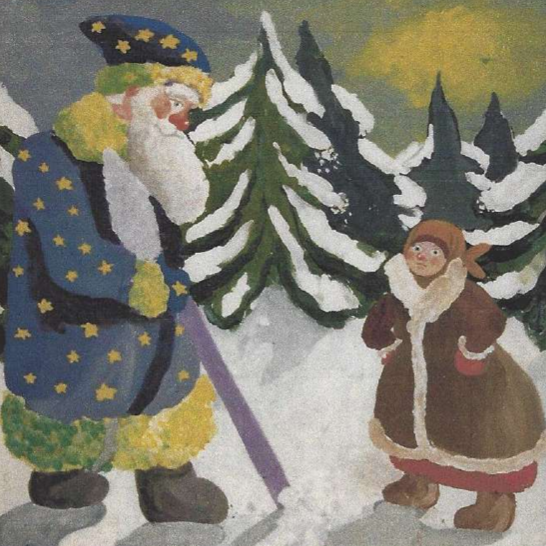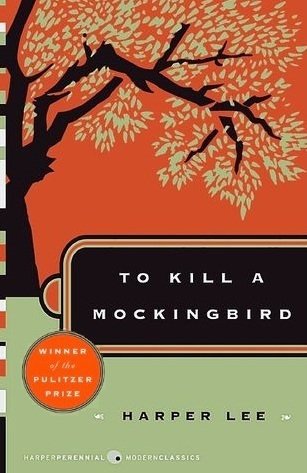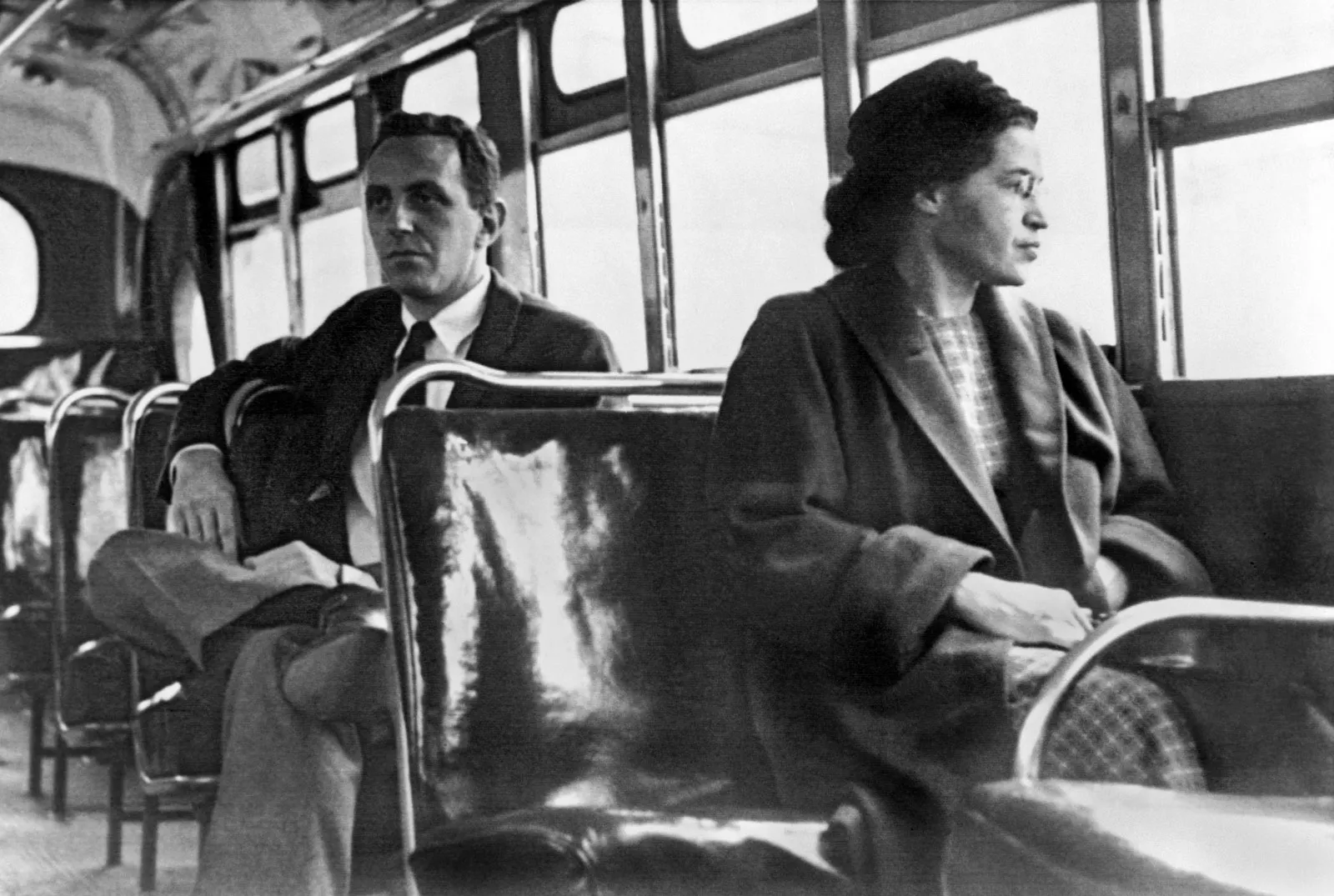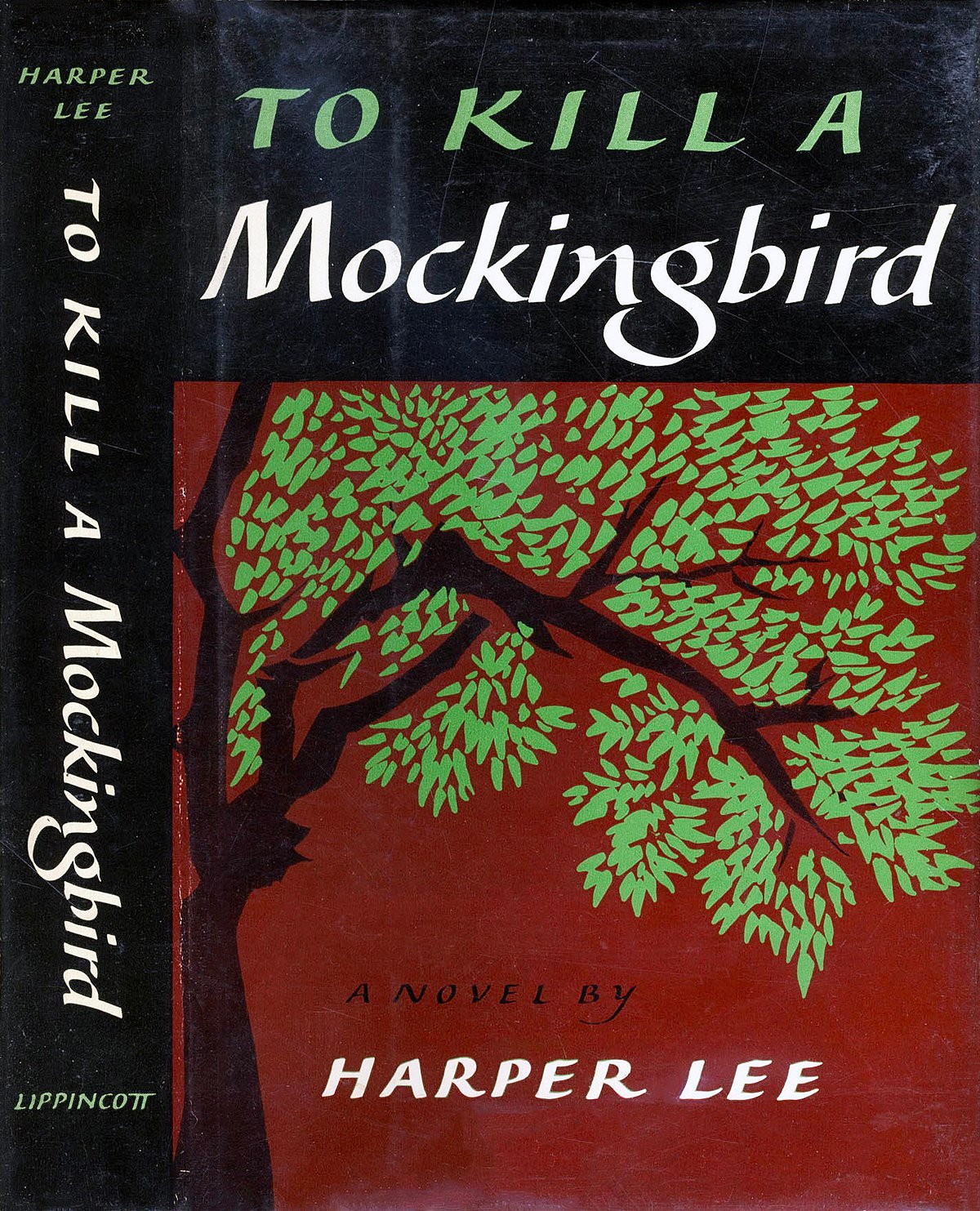Aunt Alexandra: See Alexandra Finch Hancock
Miss Maudie Atkinson
Maudie Atkinson is a strong, supportive woman who lives across the street from the Finches. A forthright speaker, she never condescends to Jem and Scout, but speaks to them as equals. It is Miss Maudie who affirms that it is a sin to kill a mockingbird, since “they don’t do one thing but sing their hearts out for us”.
A respected community member who often teasingly reproaches the children, Miss Maudie nevertheless has a impish streak. She likes to quote scripture back to conservative religious folk who frown on her brightly colored garden. Miss Maudie provides another example of bravery to the children when her home bums down. Instead of lamenting her fate, she tells Jem she looks forward to rebuilding a smaller house which will have more room for her flowers.
Mr. Avery
A good-natured if somewhat coarse neighbor of the Finches. He helps fight the fire at Miss Maudie’s house at risk to his own life.
Calpurnia
One of several strong female figures in the lives of the Finch children, Calpurnia is the family’s black housekeeper. She has helped to raise Jem and Scout since their mother’s death four years ago.
Like Atticus, Calpurnia is a strict but loving teacher, particularly in regard to Scout, whose enthusiasm sometimes makes her thoughtless. On Scout’s first day of school, for example, Calpurnia scolds Scout for criticizing the table manners of Walter Cunningham Jr.; the children have brought home as a lunch guest. That day after school, however, Calpurnia prepares Scout’s favorite food, crackling bread, as a special treat. Calpurnia also gives Scout her first awareness of the contrast between the worlds of black and white.
During a visit to Calpurnia’s church, her use of black dialect with her friends makes Scout realize that Calpurnia has a wider life outside the Finch household. Calpurnia also helps Scout understand how people can serve as a bridge between these differing worlds. Although the majority of parishioners welcome them during their church visit, one woman challenges the white children. Calpurnia responds by calling them her guests and saying “it’s the same God, ain’t it?”
Stephanie Crawford
The “neighborhood scold” who is always ready to gossip about anything or anyone.
Walter Cunningham Jr.
A poor but proud classmate of Scout’s.
Walter Cunningham Sr.
Walter Cunningham, Sr., is a member of a poor family who “never took anything they couldn’t pay back”. A former client of Atticus’s, he paid for legal service with goods such as firewood and hickory nuts. After Scout recognizes him in the potential lynch mob and speaks to him of his son, he leads the crowd away from violence.
Link Deas
A local farmer who hires a lot of black help and once employed Tom Robinson.
Mrs. Henry Lafayette Dubose
According to Scout, Mrs. Henry Lafayette Dubose is “the meanest old woman who ever lived”. She regularly insults and harasses the children as they walk by. When Jem wrecks her garden in retaliation for a nasty remark about his father, Atticus punishes him by forcing him to spend many hours reading to her. She dies later that year, and Jem learns that his reading helped her to courageously defeat an addiction to morphine.
Bob Ewell
Bob was the head of family who’s been “the disgrace of Maycomb for three generations”. He was despised by Maycomb society as a shiftless drunkard. Bob is unable to keep a job, spends all his relief money on alcohol, and traps animals outside of hunting season. He provides little support to his large, motherless family, and is reputed to beat his children. He perhaps sexually abuse them too, as Mayella’s testimony hints. Angered and shamed by his exposure on the witness stand, Ewell makes threats to Atticus and others involved in the trial; however, he never risks direct confrontation. This cowardice reaches its peak in his violent attack on Scout and Jem, during which he is killed by Boo Radley.
Mayella Ewell
The eldest daughter of Bob Ewell, Mayella Ewell lives a lonely life keeping house for her father and seven siblings without assistance. Although she can only afford small gestures such as a potted plant, Mayella tries to brighten her situation and the lives of her siblings. During the trial it is revealed that Tom Robinson’s occasional stops to help her with heavy chores were her only contact with a sympathetic soul. When Bob Ewell discovers Mayella’s attempt to seduce the unwilling Tom, his violent outburst leads her to accuse Tom of rape.
Despite her situation, she loses the reader’s sympathy when she repays Tom’s kindness with open contempt and a lie that costs him his life. The fact that the jury accepts her word over his, even when it is demonstrated to be false, further illustrates the malicious power of racist thinking.
Mrs. Gertrude Farrow
One of the hypocritical members of Aunt Alexandra’s missionary circle.
Atticus Finch
Atticus Finch, Scout’s widowed father, is a member of one of Maycomb County’s oldest and most prominent families. Nevertheless, he refuses to use his background as an excuse to hold himself above others. Instead, he is a model of tolerance and understanding.
Atticus is a lawyer and also a member of the state legislature. He is elected by townspeople who respect his honesty even if they don’t always approve of his actions. For example, when Atticus is appointed the defense attorney for Tom Robinson, a black man accused of raping a white woman, the town disapproves because he aims to do the best job he can.
As a father, Atticus is affectionate with Jem and Scout, ready with a hug when they need comfort and available to spend time reading to them. Although he allows his children freedom to play and explore, he is also a firm disciplinarian. He was always teaching his children to think of how their actions affect others and devising punishments to teach his children valuable lessons.
When Jem damages the camellia bushes of Mrs. Henry Lafayette Dubose, a neighbor who scolds and insults the children, Atticus sentences him to read to her each day. As Jem reads, he and Scout witness the dying woman’s battle against her morphine addiction and learn the true meaning of courage: “it’s when you know you’re licked before you begin but you see it through no matter what,” Atticus tells them.
Atticus’s own actions in arguing the Robinson case demonstrate this kind of courage, and his behavior throughout embodies values of dignity, integrity, determination, and tolerance. Although Atticus’s character is somewhat idealized, critic William T. Going calls Lee’s creation “the most memorable portrait in recent fiction of the just and equitable Southern liberal.”
Jack Finch: See John Hale Finch
Jean Louise Finch
The narrator of the novel, Jean Louise “Scout” Finch is almost six years old at the time her story begins. A tomboy most frequently clad in overalls, Scout spends much of her time with her older brother Jem and is constantly trying to prove herself his equal.
Throughout the book, Scout maintains an innocence and an innate sense of right and wrong. This makes Scout the ideal observer of events, even if she doesn’t always fully understand them. She naturally questions the injustices she sees instead of accepting them as “the way things are”. For instance, she doesn’t understand why her aunt makes social distinctions based on “background” when Scout thinks “there’s just one kind of folks: Folks”.
Her independence and outspokenness often get Scout into trouble, however; she is quick to respond to insults with her fists and frequently opens her mouth at inappropriate moments, as when she rudely remarks on the table manners of a guest. By the end of the novel, however, eight-year-old Scout has learned a measure of restraint, primarily through the influence and example of her father Atticus.
Jem Finch: See Jeremy Finch
Jeremy Finch
Four years older than his sister Scout, Jeremy “Jem” Finch seems to have a deeper understanding of the events during the three years of the novel; his emotional reactions to them are stronger. As the story begins, Jem is a quick-witted but funloving ten year old. He spends a lot of time in creative play with Scout and Dill Harris, a summer visitor to the neighborhood. Jem is frequently exasperated by his sister, and requires her to keep her distance during school hours.
Nevertheless, for the most part Jem is an understanding and encouraging older brother. He allows Scout to join in his games and even dignifying her with an occasional fistfight. He is anxious to please his father, and hates to disappoint him. When Jem loses his pants in the “raid” on the Radley house, he insists on returning for them during the middle of the night. The gesture was not so much to avoid the pain of punishment. Hee explains, “Atticus ain’t ever whipped me since I can remember. I wanta keep it that way.”
As he approaches adolescence, however, Jem becomes quieter and more easily agitated: he reacts angrily when Mrs. Dubose leaves him a small peace offering after her death. Although more socially aware than Scout, he is genuinely surprised at Tom Robinson’s guilty verdict. The trial leaves Jem a little more withdrawn and less self-confident. He spends much of the following fall concerned for his father’s safety. He demonstrates his own courage, however, when he protects his sister from the attack of Bob Ewell without regard for his own safety.
John Hale Finch
Atticus’s younger brother, a doctor who left Maycomb to study in Boston.
Scout Finch: See Jean Louise Finch
Miss Caroline Fisher
Scout’s first-grade teacher who is a newcomer to Maycomb. She misunderstands the social order of Maycomb and punishes Scout for trying to explain it. She also comes into conflict with Scout because of the girl’s reading ability.
Miss Gates
Scout’s hypocritical third-grade teacher who condemns Hitler’s persecution of the Jews even as she discriminates against her own students and complains about blacks “getting above themselves.”
Mr. Gilmer
The circuit prosecutor from Abbottsville who leads the case against Tom Robinson.
Alexandra Finch Hancock
Atticus’s sister, Alexandra Finch Hancock, is a conservative woman concerned with social and class distinctions and bound to the traditions of the South. She tries to counteract her brother’s liberal influence on his children by reminding them of their family’s eminence and by trying to make Scout behave in a more ladylike manner.
When she moves in with Atticus’s family, her efforts to reform Scout include requiring her attendance at regular meetings of a “missionary circle”. The meetings focus on improving the lives of “heathens” in distant Africa rather than on the needy in their own town. Aunt Alexandra is not completely unsympathetic, however; she also shows—in private—some anger towards the hypocrites in her missionary circle. Although she disapproves of Atticus’s role in the Robinson case, she becomes upset upon hearing news of Robinson’s death during one of her parties. Her ability to continue on leads Scout to state that “if Auntie could be a lady at a time like this, so could I.”
Francis Hancock
Scout and Jem’s cousin and Alexandra’s grandson.
Charles Baker Harris
Small and devilish, Charles Baker “Dill” Harris is Scout and Jem’s summer friend. He instigates much of the children’s mischief by daring Jem to perform acts such as approaching the Radley house. He seems to have a limitless imagination, and his appeal is only enhanced by his firsthand knowledge of movies such as Dracula. Seemingly ignored (but not neglected) by his parents, Dill enjoys his yearly visits to his aunt, Rachel Haverford, who lives next door to the Finches—he even runs away from home one summer to come to Maycomb. A year older than Scout, Dill has declared he will one day marry her, a statement she seems to accept matter-of-factly.
Dill Harris: See Charles Baker Harris
Rachel Haverford
Dill Harris’s sympathetic aunt, who lives next door to the Finches.
Grace Merriweather
A member of Alexandra’s missionary circle who has a reputation as the “most devout lady in Maycomb” even though she is a hypocritical bigot.
Arthur Radley
Arthur “Boo” Radley has a strong presence in the novel even though he isn’t seen until its last pages. A local legend for several years, Boo is rumored to wander the neighborhood at night and dine on raw squirrels and cats. He has spent the last fifteen years secluded in his own house.
An adolescent prank led his late father to place him under house arrest. His sinister reputation stems from a later incident, when it was rumored that he stabbed his father in the leg with a pair of scissors. Boo becomes a central figure in the imaginations of Scout, Jem, and their neighbor Dill Harris, for their summers are occupied with dramatic re-creations of his life and plans to lure “the monster” out of his house.
Despite his history of being abused by his father, Boo is revealed to be a gentle soul through his unseen acts: the gifts he leaves in the tree; his mending of Jem’s torn pants; the blanket he puts around Scout the night of the fire; and finally, his rescue of the children from Bob Ewell’s murderous attack. The children’s fear of Boo Radley, based on ignorance rather than knowledge, subtly reflects the prejudice of the town against Tom Robinson—a connection mirrored in the use of mockingbird imagery for both men.
Boo Radley: See Arthur Radley
Nathan Radley
Boo’s hardhearted older brother who spoils Boo’s secret game with the children by filling the empty treehole with cement.
Dolphus Raymond
A local man from a good white family with property who has a black mistress and children. He fosters a reputation as a drunk to give townspeople a reason to excuse his flaunting of social taboos.
Tom Robinson
Tom Robinson is a mild-mannered, conscientious black man. His kind acts earn him only trouble when Mayella Ewell accuses him of rape. Because he saw she was left alone to maintain the household without any help from her family, he often performed small chores for her. During his testimony, he relates that he felt sorry for the girl. This remark affronts the white men in the jury; theysee it as evidence that he is overreaching his social station. Although he is clearly proven innocent, the all-white jury convicts him of rape, a crime punishable by death. Unconvinced that he can find justice on appeal, Robinson attempts to escape from his prison camp and is shot dead.
Reverend Sykes
The minister of Maycomb’s black church.
Heck Tate
The sheriff of Maycomb who is sympathetic towards Atticus. He insists on keeping Boo Radley’s role in the death of Bob Ewell a secret.
Judge John Taylor
The deceivingly sleepy but fair judge whose sympathy for Tom Robinson can be seen in the fact that he appointed Atticus. He knew would do his best, as Robinson’s public defender.
Uncle Jack: See John Hale Finch
B. B. Underwood: See Braxton Bragg Underwood
Braxton Bragg Underwood
The owner and editor of the local newspaper who was ready to defend Atticus and Tom Robinson from the lynch mob with a shotgun even though he is known to “despise” black people.



